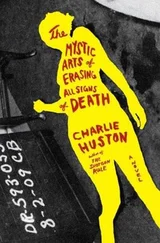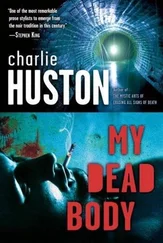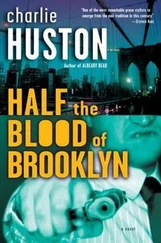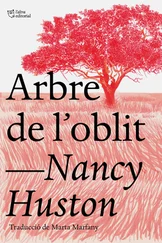Apart from insomnia, Subra interrupts.
True. The bane of my existence, these past few years. After I hit forty, it started getting so bad I couldn’t hide it anymore. When Thierno spent nights at my place, it worried him to see me get up at noon, pale and haggard, with purple rings beneath my eyes. ‘You know, Mom,’ he said at last, ‘there are cures for insomnia.’ ‘Thanks but no thanks. Seen enough shrinks to last me a lifetime.’ ‘I’m not talking about analysis, I’m talking about acupuncture.’ ‘Wha…?’ ‘You heard me.’
He went on to tell me that the mother of his piano teacher Pierre Matheron had studied acupuncture in Indonesia. Her fees were reasonable, he said, her office close by, and her talent considerable. ‘Seriously,’ he wound up, laying a hand on mine, ‘you should give it a try.’
Touched by my son’s solicitude, telling myself it wouldn’t hurt to try, I called Dr Matheron’s office and set up an appointment.
One of the best decisions you ever made, whispers Subra.
The doctor shook my hand warmly as she ushered me into her office. In her mid-fifties at the time, she was a smallish woman with a reassuringly sturdy build and laughing hazel eyes. But it was her face that set me instantly at ease — a broad face framed in blonde hair liberally mixed with white; a good, crinkly face with high cheekbones and a surprisingly pointed nose; a face that freely admitted to having smiled and frowned millions of times.
Taking out a form, she asked me the usual questions: medical history, date and place of birth…‘Ah, you’re Canadian.’ I was bracing myself for the inevitable That’s funny, you don’t have a Canadian accent — such a charming accent it is, too! — a double insult for the Québecois, who prefer not to be called Canadian and consider (as do many French provincials) that if anyone has an accent, and a ridiculous one at that, it’s the Parisians — but Dr Matheron said nothing of the sort. I deduced that she wasn’t a native French speaker herself, which endeared her to me even more. I have a marked preference for people who are split — bi’s and ambi’s of all sorts. That’s why I live in the neighbourhood of Belleville, where bilingualism is the rule and not the exception, where you know that behind every face in the street is a brain teeming with sentences, quotes, expressions, songs and proverbs in French and another language, whether Chinese or Arabic, Turkish or Kurdish, German, English or Cambodian. I have no patience for people who think they know who they are just because they were born somewhere. ‘What about yourself?’ I asked Kerstin Matheron with my usual impertinence. ‘Swedish,’ she replied.
As she took my pulse, holding two fingers against the inside of my wrist and looking at her watch, I began to feel suddenly and unexpectedly euphoric. ‘Thirteen/eight — that’s fine. Now…How long have you been finding it hard to sleep?’
I told her about my nights — my addiction to working at night, whether out of doors or in my own dark room at home. My clinging to wakefulness. Wanting never to let go. My pleasure in feeling the neighbourhood asleep around me, its inhabitants’ dreams floating in the air. I go back and forth from printer to baths and from baths to printer, always on my feet, turning the lights on and off, at once excited and focused. On the dry side, I love studying the grains through the grain magnifier — they have an organic feel to them that reflects the nature of light, something pixels can’t achieve. (Pixels are real Germans: Alles ist immer in Ordnung!) On the wet side: the same awe every time an image appears, even when there’s something wrong with it. It’s like making love — stirring no matter what happens. When I take the paper out of the first bath, slick and shiny as a fish’s stomach, it seems to be alive. I slide it into the other two baths, spend long minutes washing it, slap it up on the wall, study it, and start over, printing a bit differently, using a masking card to bring out detail in one part of the image without overexposing the rest…I can remain on my feet twelve hours straight without even noticing fatigue. Night hours are flexible and generous — they have no minutes — whereas day hours go marching past like soldiers, in serried ranks…These last few months, though, nightmares have been tearing me out of slumber and washing me up on the shore of the day dead beat, broken.
I lay down on Dr Matheron’s medical bed, wearing nothing but my blue silk lace panties. She exclaimed at how thin I was. When she asked if I ate normally, I said, ‘As a rule, yes, but my sons are living with their dad right now and I find it hard to cook just for myself.’ With swift, deft, gentle motions, dabbing each spot in advance with a bit of alcohol-soaked cotton, she went about screwing thin needles into my ankles, hips, and collarbone, talking to me all the while in her warm, musical voice. ‘Everyone finds it hard to cook just for themselves,’ she said. ‘I myself have been eating like a barbarian even since my husband’s death. I just take some salmon out of the freezer, slap it into a Pyrex dish, add a bit of white wine and stick it in the microwave for ninety seconds.’ ‘I doubt the barbarians used microwaves to cook their salmon,’ I said. ‘You’re right, we have no idea what they used their microwaves for,’ she said without missing a beat.
Rena laughs out loud, remembering. Thanks to that witticism, the tendrils of friendship that had been sprouting in her heart since she’d first entered Kerstin’s office burst into bloom. Now, five years later, the two women are inseparable.
Exhilarated by the panoramic view, Rena phones Aziz and gets his answering machine. ‘Aziz I love you I miss you I want you I desire you I wish I had your gorgeous cock in my mouth this very minute. When you’re not around I feel I’m going mad, I lose my sense of humour, my bearings — my self. Just now I was looking at a statue of Neptune and I thought it had multiple sclerosis, can you believe that? Oh, baby, if only you were here with me…At least we could fool around together, sneak off into dark corners and do all sorts of naughty things to each other…I adore you. I can’t stop thinking about you. Catch you later.’
Their branches waving gently in the wind, their foliage rusted by autumn nights, the trees look like wild-haired witches. Rena crouches down, takes out her black bag (a sort of sweater with no neck opening), and loads her camera with a roll of infrared film. Instantly elated, she moves slowly back down the hill, concentrating passionately on every object in her viewfinder.
The extraordinary thing about infrared, the voice in her head tells Subra, is that it happens elsewhere, in an alternate reality. What you photograph is not what you see. You have to imagine what the photo will look like once you develop it, taking all sorts of factors into account — the reds in the landscape, the angle of sunlight, the filters you use or don’t use. You have to dream each tree individually and try to guess at its secret, knowing the foliage will end up looking like an explosion of white lace. Infrared reveals a delicately deformed light that seems to come from a forgotten past. It is not, as many people think, a gimmick. The eyes of some animals capture infrared light rays; ours happen not to — but those rays are emitted whether we see them or not.
It all depends on who’s looking at what, with what, from where. Close up, a cloud is a mass of water droplets in suspension; from far away it’s a purple mountain against a blue sky — and even the blueness vanishes, as Simon pointed out to me under LSD, if you get too close to it. Photography is relative: when you slip the negative into the enlarger and beam light through it, tiny black spots get projected onto the Barite paper below but those spots are not the photograph, they’re only a network of possibilities; you can move in closer until all you see are tiny filaments dancing in the void, or move away until the whole image is one black dot; you can drown the spots in light or lose them in shadow…People, too are relative: seen from too close up or too far away, they lose their meaning. Instinctively, you learn to manipulate distance, framing, exposure, contrast, searching for what is meaningful…‘They want to be paid that much attention,’ as Diane Arbus once put it, ‘and that’s a reasonable kind of attention to be paid.’
Читать дальше












